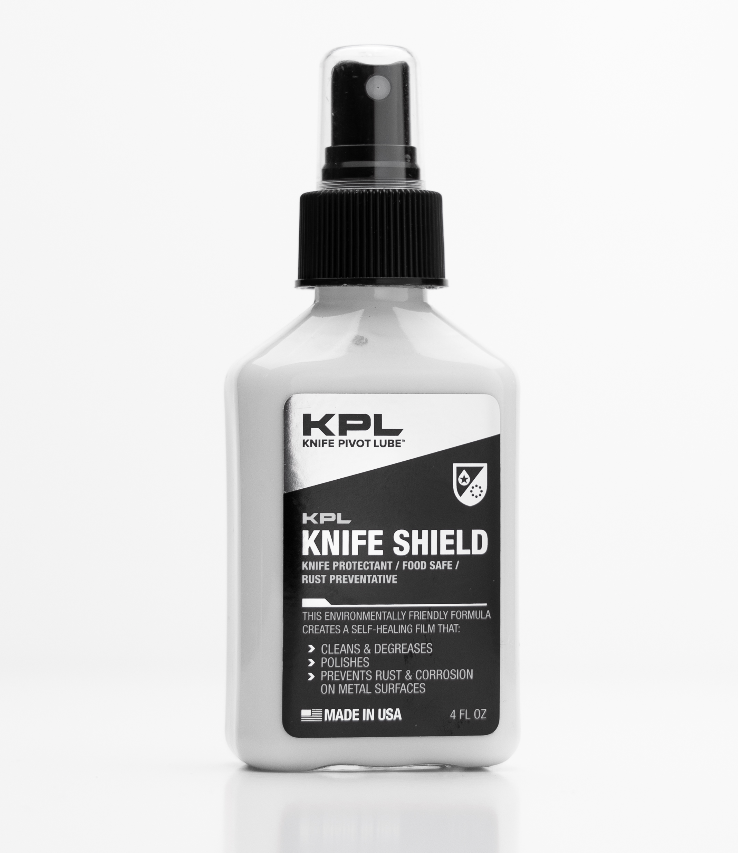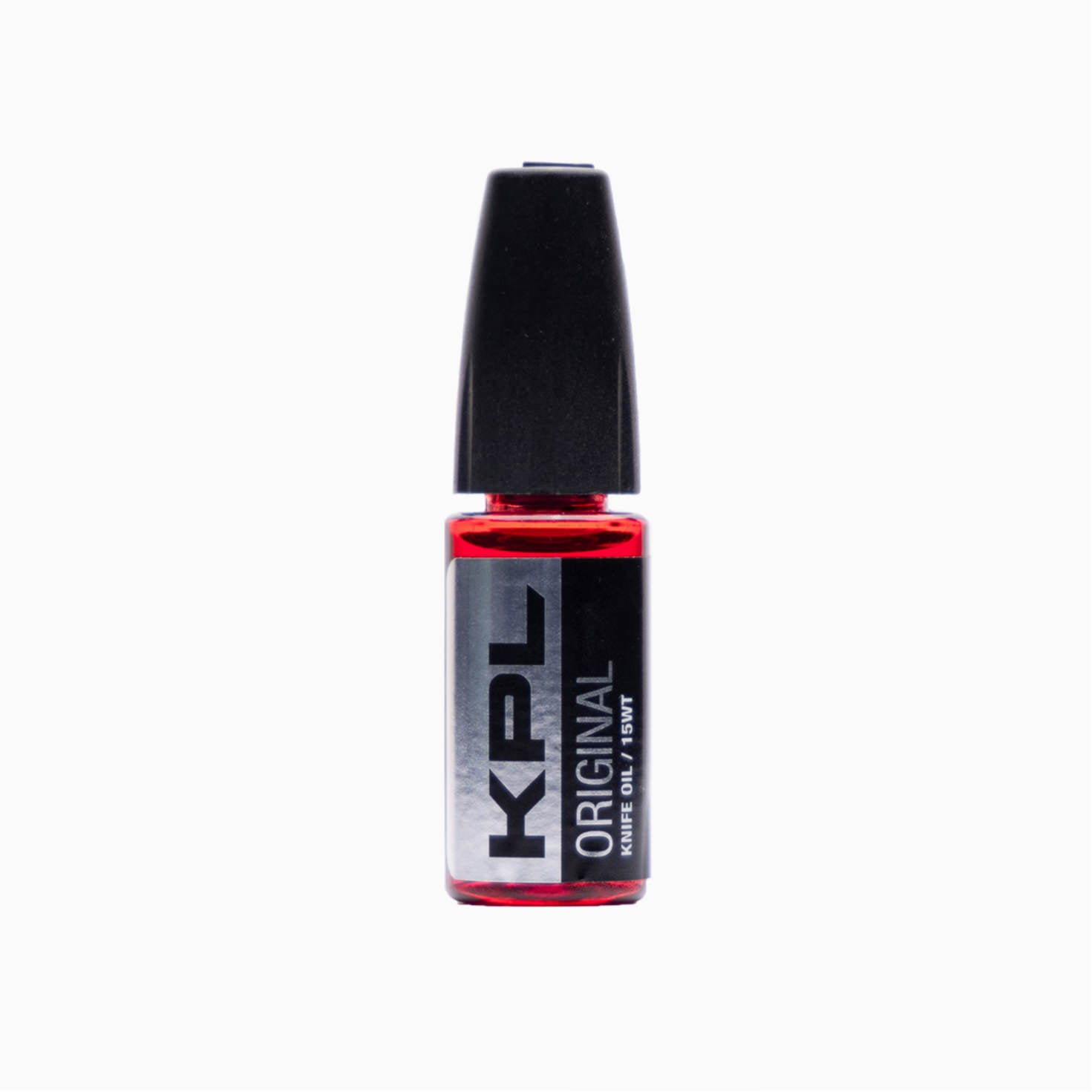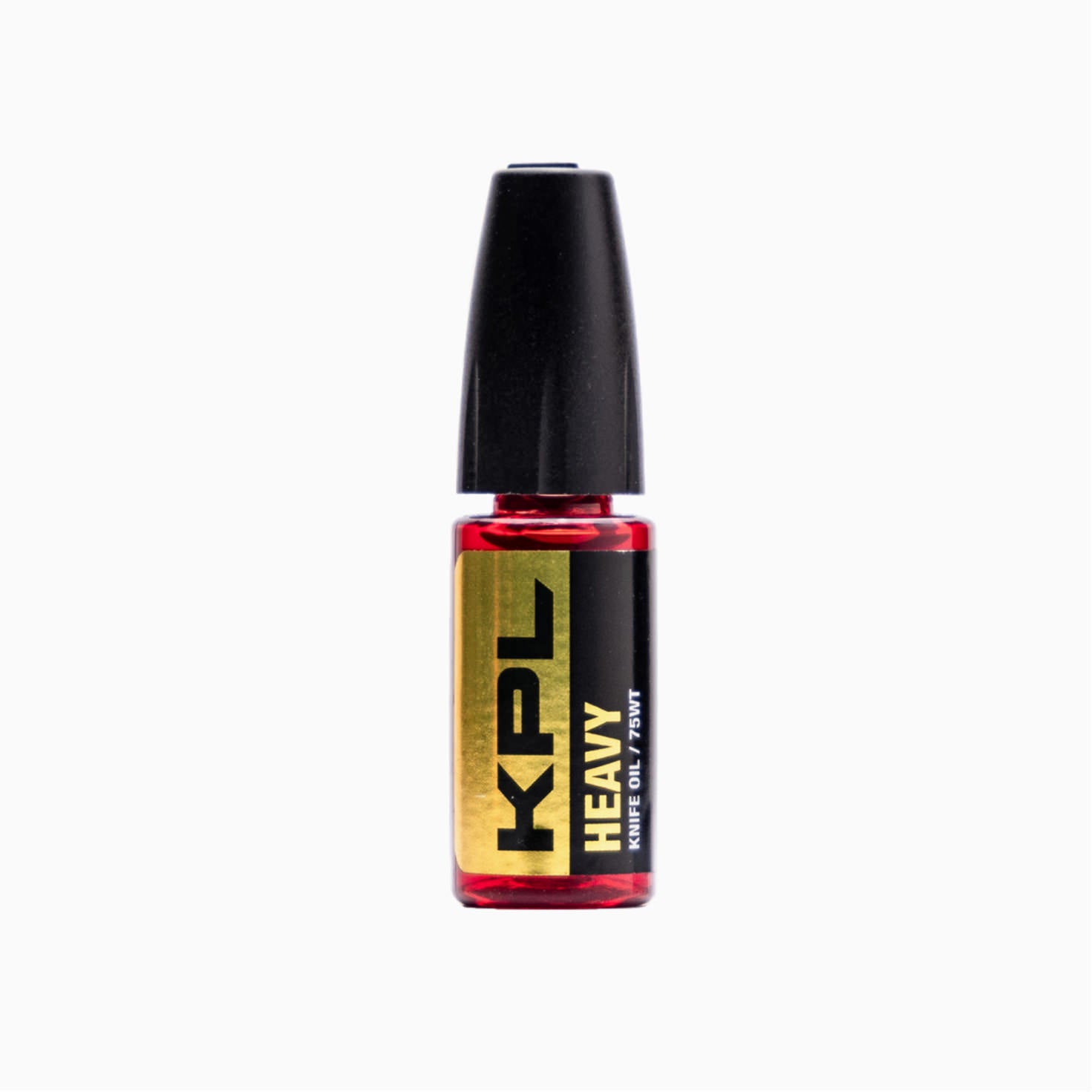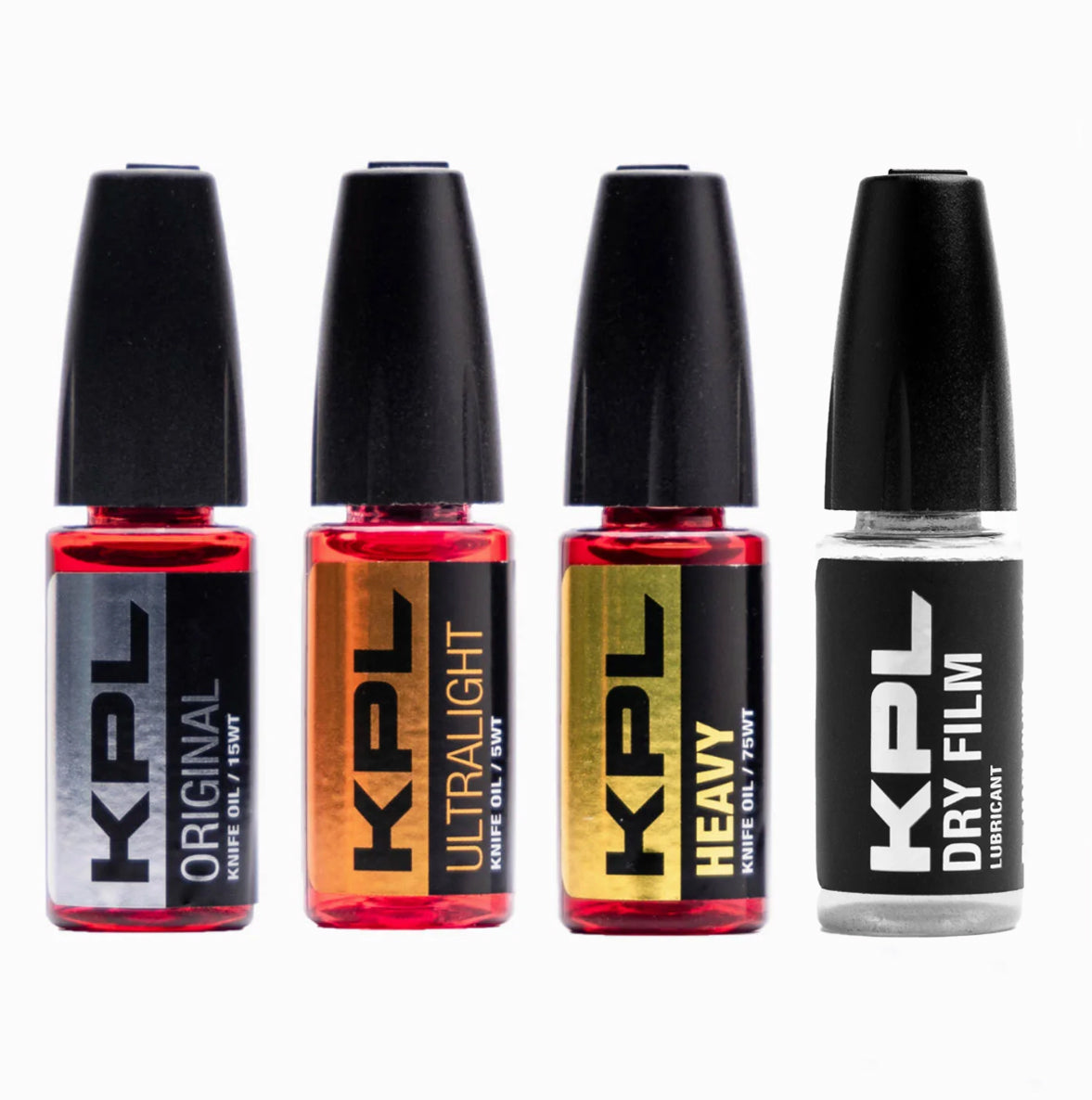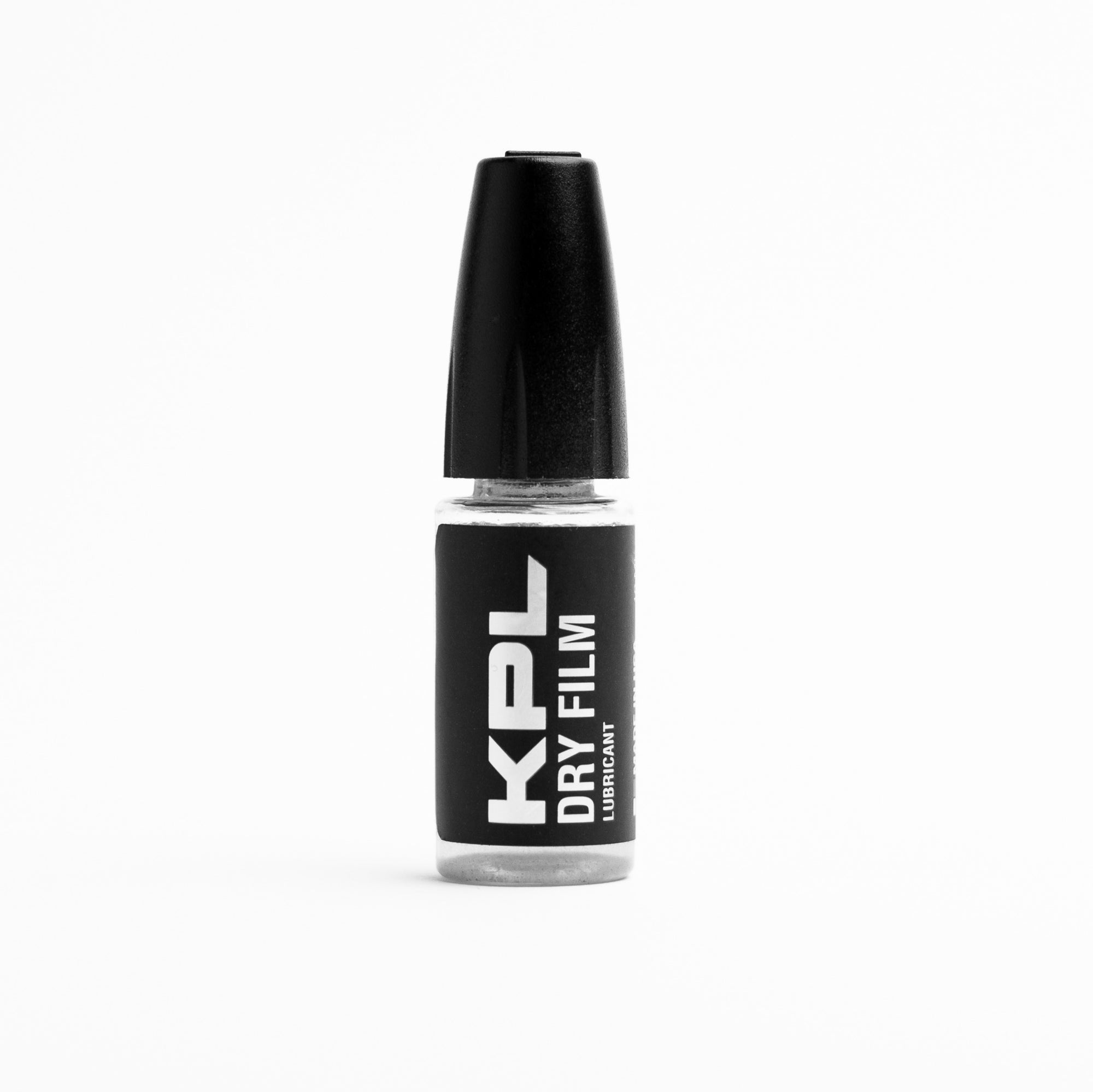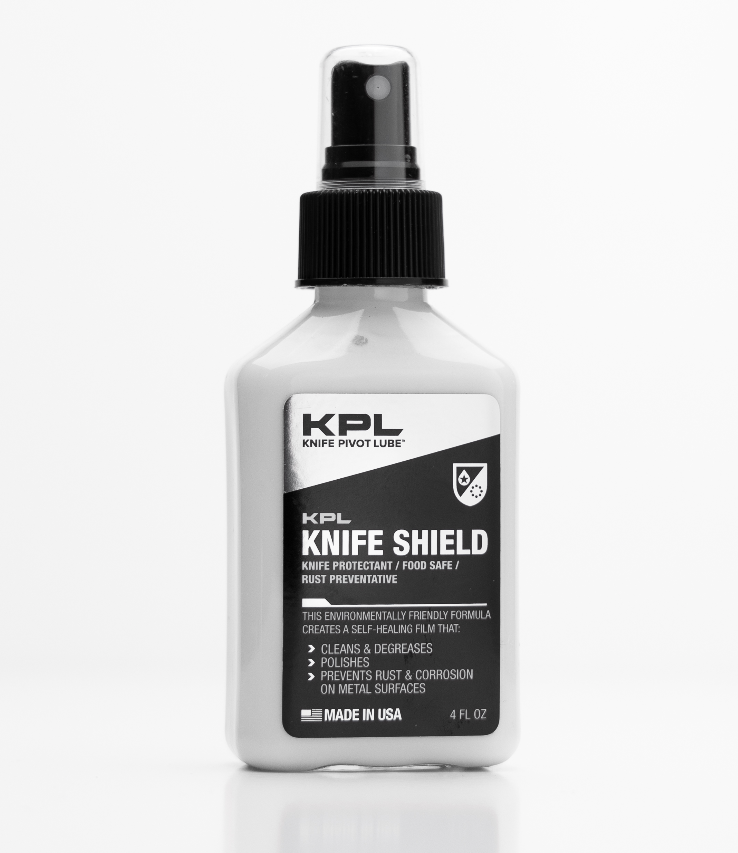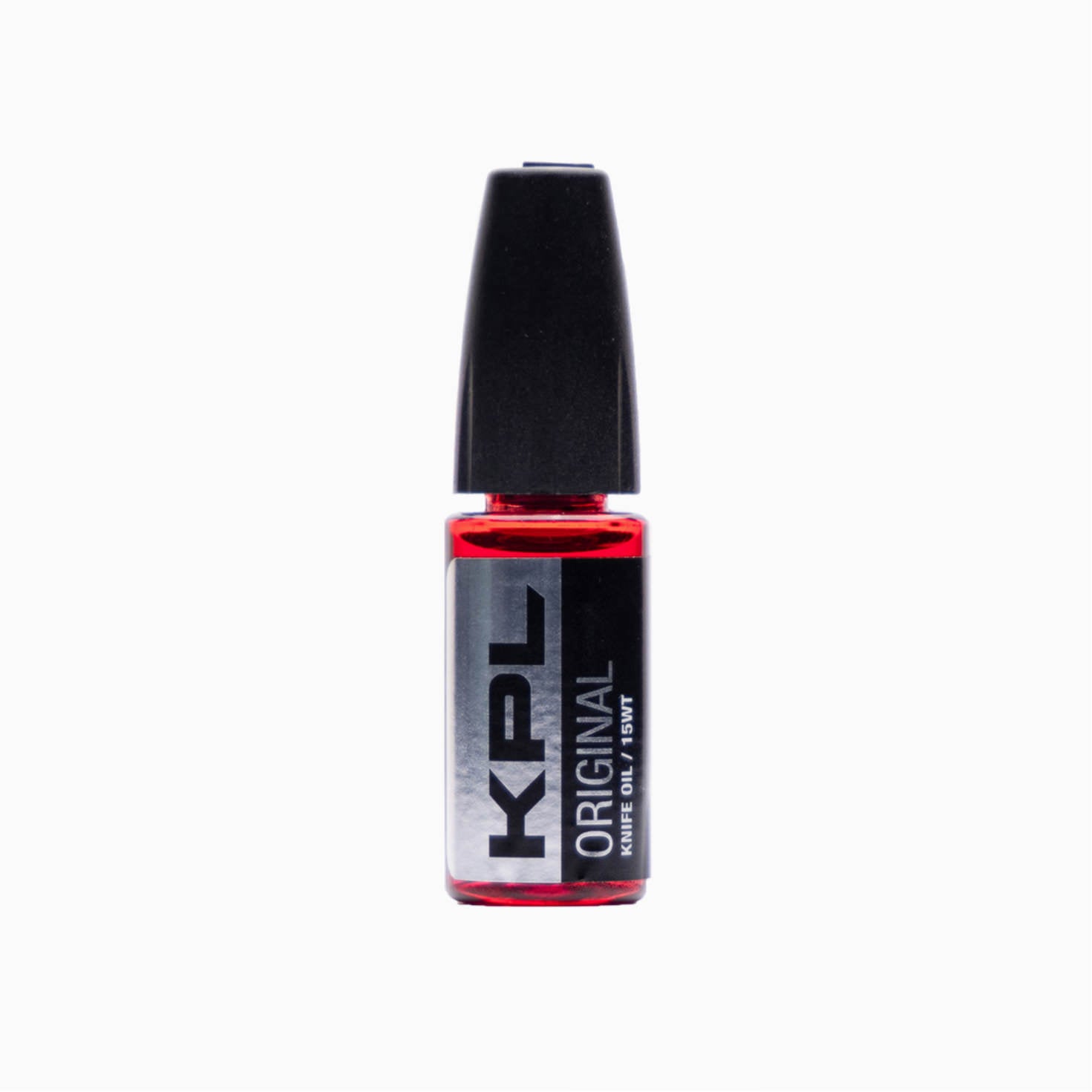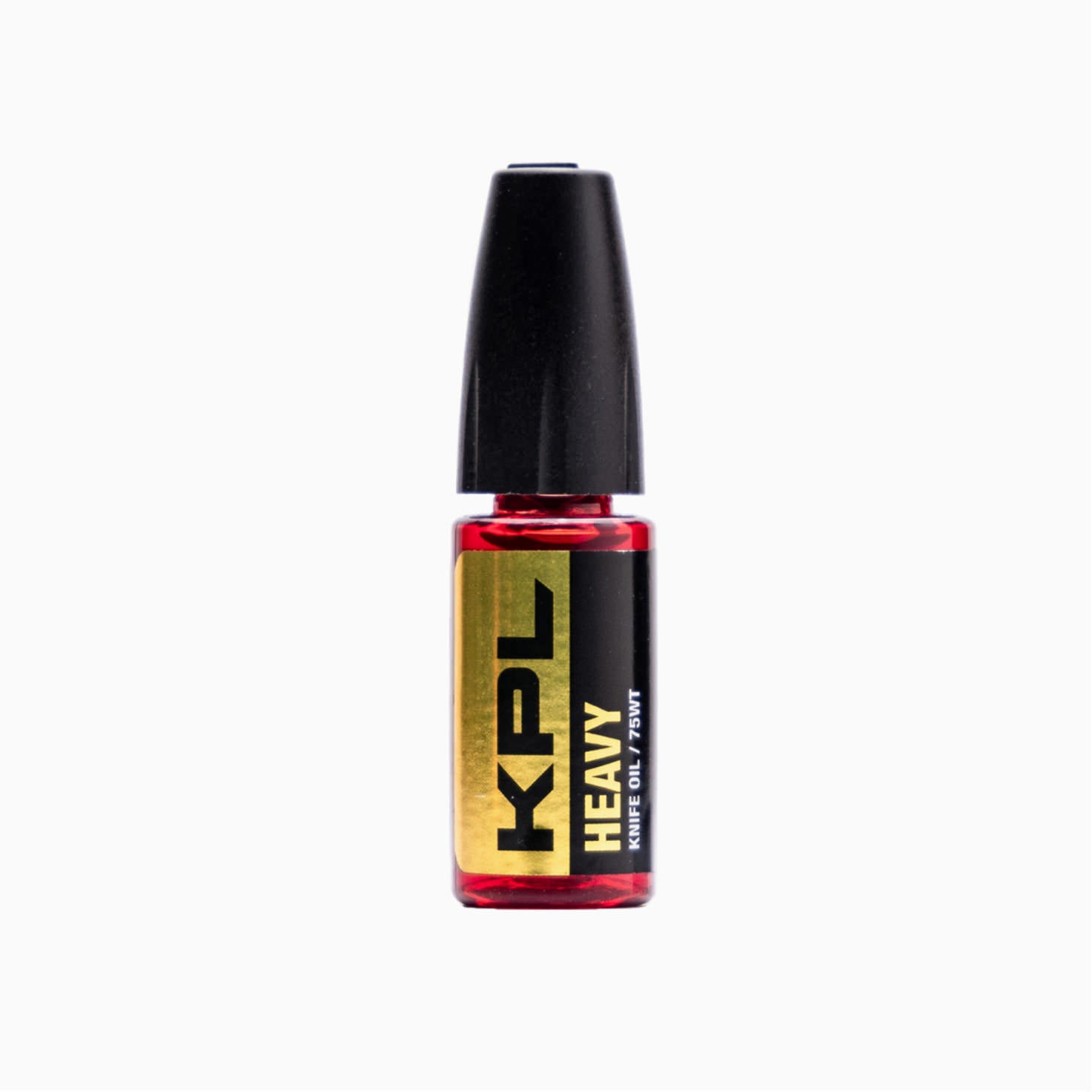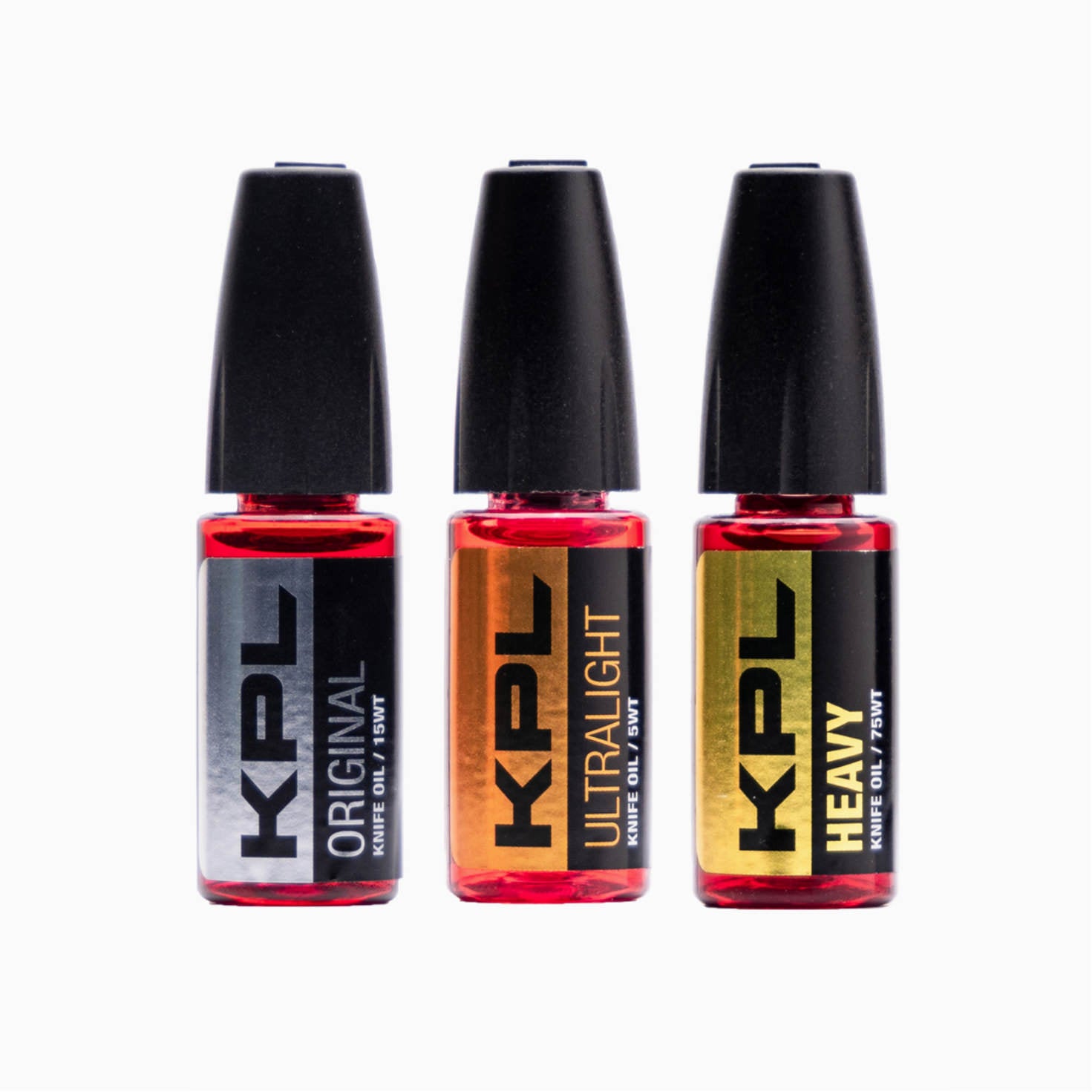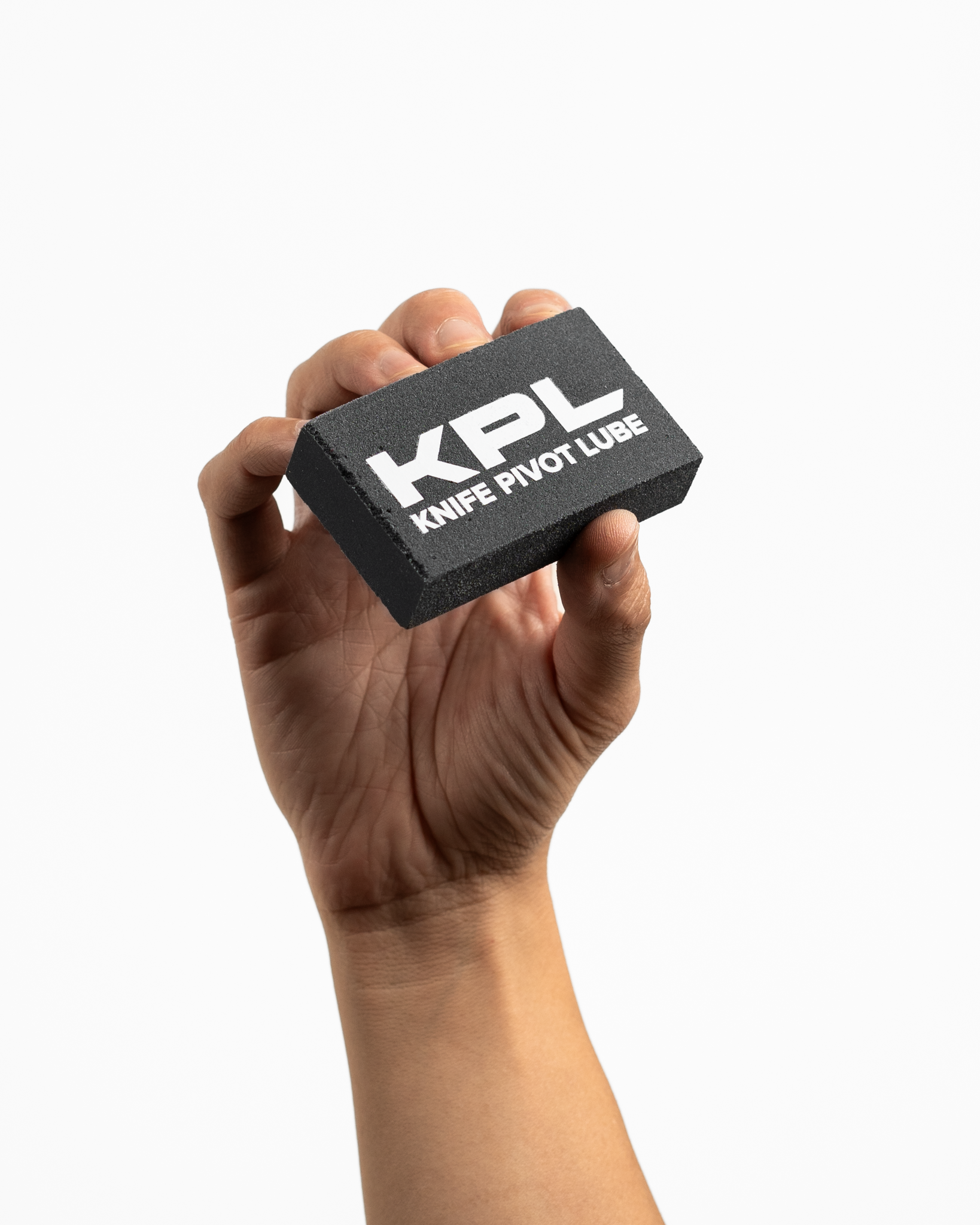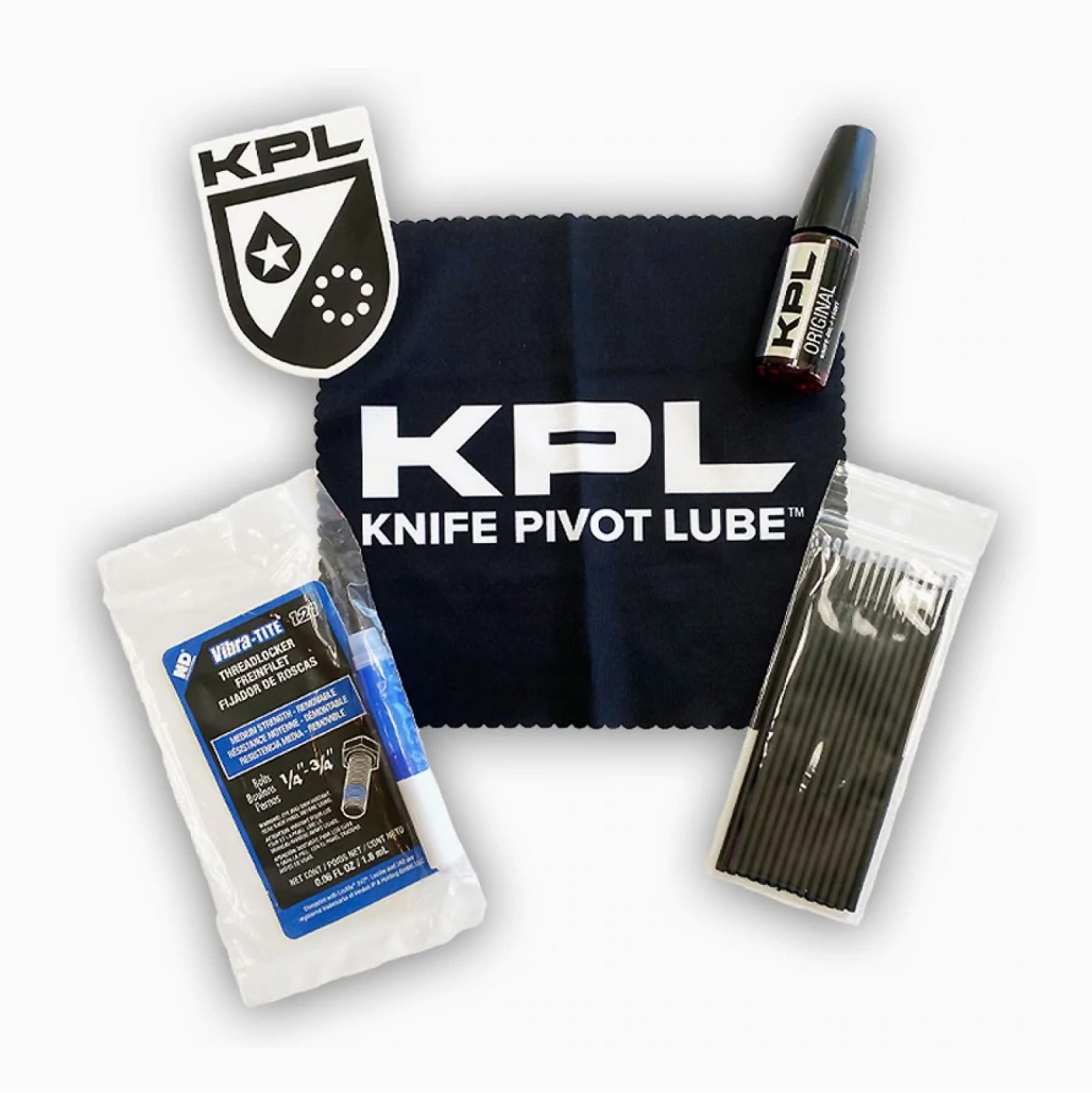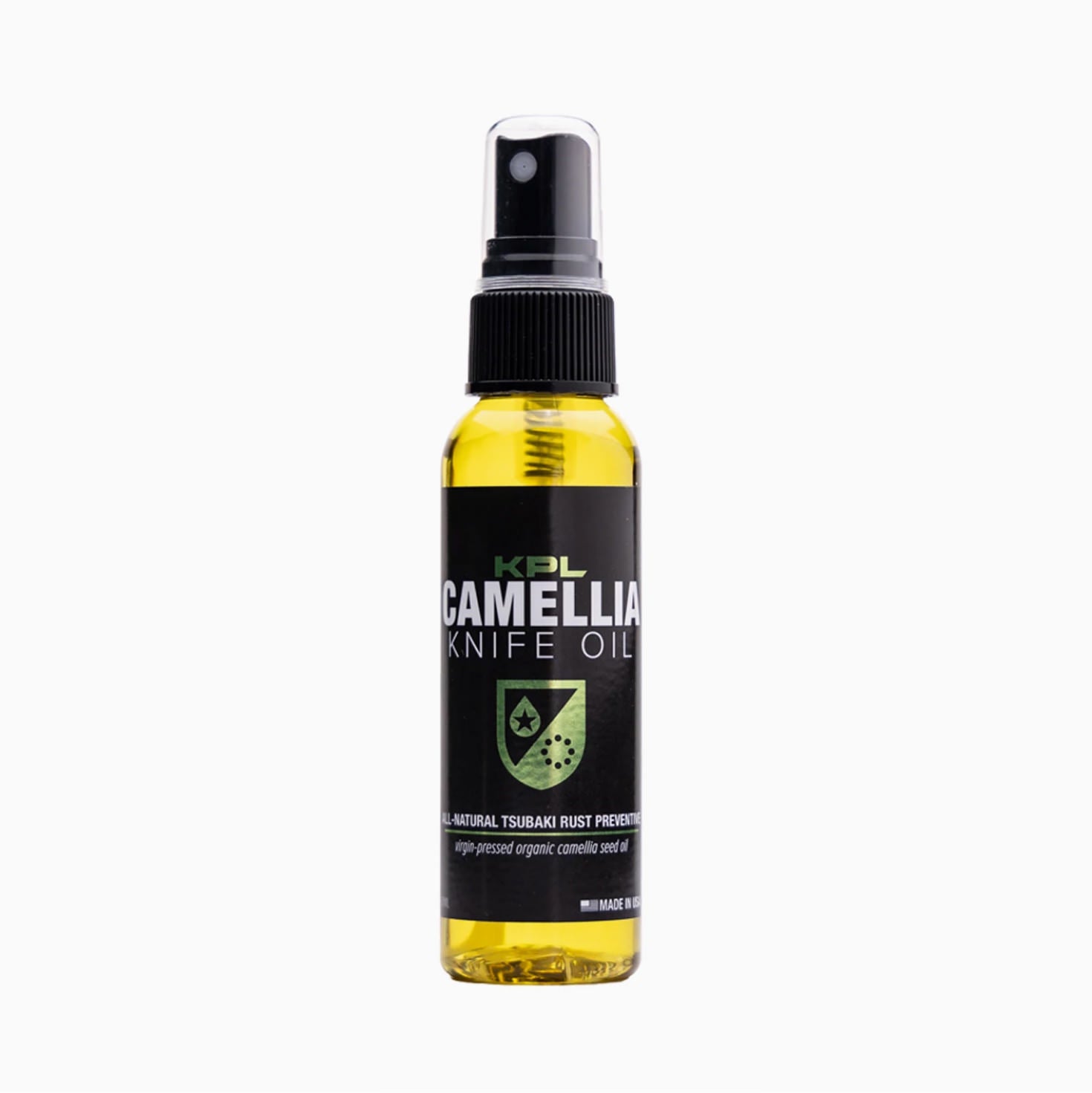Here at KPL, we are absolutely passionate about knife lubrication. Premium lubricants make knives perform better, open more consistently, deploy faster, and operate without producing scratchy noise. Of course, we all love a knife that flips open fast, closes effortlessly, and doesn't have any "grit" in its detent track. But, did you know that aside from these obvious benefits, lubrication/oiling also immensely extends the longevity of your knife and its components? In this post, we discuss the protective advantages that come from using a premium knife oil like KPL.
Moving Parts
Just like the engine in a car, moving parts need lubrication in order to increase their operating life. As you use a knife, parts in contact will begin to wear away at one another, increasing friction further and pulling abrasive particles off of surfaces. at its worst, in a process known as galling, parts can actually stick to one another and tear off larger particles, further increasing surface roughness and permanently damaging the components.

Galling Damage
As wear accelerates, parts can actually shrink, introducing play and poor fitment. Knife oils act as a slippery layer between contacting parts, forming a microscopic boundary layer that prevents them from touching. If the parts never actually touch, they cannot abrade one another and knife parts maintain smoothness and tolerances long-term. High quality, extreme high pressure lubricant oils like Knife Pivot Lube work best to protect parts because of their high film strength that does not break down even when parts experience extreme point pressures caused by detent balls, bearings, springbars and hard use.
Grit and Contaminants
Our knives live extraordinarily harsh lives. Unlike the sealed or shielded environments of most moving machine parts, our knives are exposed completely to extremely harmful contamination by pocket lint, dust, dirt, abrasives, water, and salt. These contaminants are not only cause knives to feel gritty and scratchy, they also do damage each time the knife is deployed.

A high quality lubricant oil pulls these particles into suspension, coating them completely and preventing them from conglomerating into larger clumps. Once in suspension, the particles are prevented from doing damage, and they tend to slip and flow out from between metal components, leaving the interface clean and clear.

Quality knife oils also protect metal surfaces from moisture and salt, preventing rusting and galvanic corrosion.

Metal Corrosion caused by Salt and Moisture
Beyond excluding moisture, Knife Pivot Lube is enriched with corrosion inhibitors that bond to metal and prevent rust from taking hold, especially in tight crevices between metal parts.
Bare Metal
As someone who has just as many fixed blade knives as folders, I still lubricate them regularly. To some, this may be a new concept, but its actually quite simple; surface rust happens! Even on a well used knife, it's totally possible for the bare metal to develop surface rust, so a wipe down of the blade and parts is well warranted. For folders, this is well advised due to how often they're carried. Depending on use, and blade steel (high carbon will rust much quicker than stainless), you may want to wipe the blade down with lube after using it in a wet environment, or after using it on food. For food, be particularly careful, as certain acidic foods can stain a blade very quickly after use!! And in case you're wondering, a simple cloth won't work without lube, as there is always residual moisture that needs addressed. Lubrication will displace the water and coat the blade with mechanisms to fight rust. Aside from use alone, having the knife in an environment like a pocket contributes as well. Sweat is extremely corrosive and can get to a knife in places other than the blade. I'd argue that most pocket-carry, so you likely fall into thid group. With this in mind, when cleaning a knife, don't just lube the pivot and detent; give all of the areas attention!
Wrap-Up
 As mentioned, there are important reasons to regularly use knife lubricant in order to protect your blade. There are of course, many other advantages too (lubricated blades slide through binding cuts easier etc..) but as for extending the longevity of your tool, and keeping it in good shape, protecting the components and overall shape of the knife is paramount. We suggest a regular wipe down after every few hard uses (of course taking what you're cutting, and blade steel into consideration) as well as a more thorough wipe down with lubricant when the knife is disassembled, and the detent and pivot are being addressed.
As mentioned, there are important reasons to regularly use knife lubricant in order to protect your blade. There are of course, many other advantages too (lubricated blades slide through binding cuts easier etc..) but as for extending the longevity of your tool, and keeping it in good shape, protecting the components and overall shape of the knife is paramount. We suggest a regular wipe down after every few hard uses (of course taking what you're cutting, and blade steel into consideration) as well as a more thorough wipe down with lubricant when the knife is disassembled, and the detent and pivot are being addressed.

